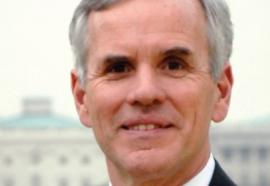Seeing Green
Renewables attract utility investment dollars.
New federal policies have opened the gates to utility investments in renewable generating plants. Some states, however, still make it difficult for utilities to put such assets into the rate base. Executives at Duke, OG&E, PG&E and Xcel Energy discuss challenges and opportunities affecting their renewable investment strategies.










